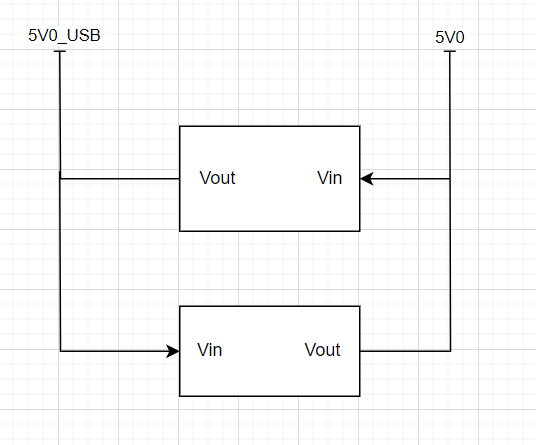I have a question with regards to the TPS22950. I am testing a design in which two loadswitches are used in parallel (basic block diagram attached). The reasoning behind the circuit was that a usb port could be used as both a source and a sink. When the device was used as a sink a 500mA current limit should be applied and as a source 100mA. With the two complementary load switches, 1 for sourcing and 1 for sinking of which only 1 is on at the time would implement this functionality. However in reality we see this the LS, which is not enabled, break (short between Vin and Vout). So this is when a usb cable is connected when the device is not powered yet, so the 5V0 is still low. There is protection in place to prevent voltage spikes when plugging in the cable (which has been verified). Is there something fundamentally wrong with the setup shown below?



